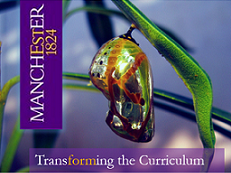The Revolution Of My Educational Belief
There is a famous saying in China: “师者,所以传道授业解惑也” (Han,802A.D.), which means a teacher, one who could propagate the doctrine,impart professional knowledge,and resolve doubts. In my opinion, before 1000 years ago, I think it is. While with the development of human being, and the related items also become prosperous, such as technology, business, industry and so on.

It seems that human believes that they are the master content of the earth and they believe they could dominate everything. Wait a second, let’s look at the data. “The great dinosaurs appeared during the Triassic Period (250 million to 200 million years ago) and lasted to the end of the Cretaceous Period, a span of about 100 million years.
Ants probably began to appear on the planet about 150 million years ago, and fungi have been around for more than 300 million years. By comparison, Homo sapiens sapiens (that’s us) have been around for only about 200,000 years. By planetary standards, we are a brand new species ” (Nolet,2015)
From these comparisons, we are truly a brand new species and if we could like to survive longer, what we should do? From the course of Educating for sustainability, there is a kind of revolution of my educational belief. As an English teacher, before I took this course, I think my duty is just as the beginning states “ propagate the doctrine,impart professional knowledge,and resolve doubts” While when I have seen lots of environment pollution videos, I felt very painful and shocked. There is an impressive moment in the course:
Professor Susan has asked one question “Is there anyone who could recognize the trees and birds outside the window?”
Silent…
At that moment, my feeling was just like someone poured a bottle of ice water top from my head down my feet. We are all postgraduate students, we know a lot about education while we have no idea of our surroundings. That’s a pity.
From that day, my educational belief has changed, as human being, we should first know about our surroundings and take good care of it, because we rely on them as our habitat. As a teacher, besides teaching language, there is another duty which is to develop student’s habit of loving nature and lead a sustainable lifestyle.
hen i species ” (Nolet ,2015) t they are the center of the earth and Bowers (2006) and others (Mies & Shiva,1993; O’Sullivan & Taylor, 2004)
are promoting a ‘revitalization of the commons’, which means a praise of the local practices, forms of knowledge and skills that have constantly been refreshed over generations. “Life-sustaining physical spaces, intergenerational traditions and non-monetized exchanges” that include the responsible use of the natural environment and its elements, such as air, water and the culture in everyday life are made up the commons and are known for centuries.
There was another unforgettable experience in the Educating for sustainability course. It’s an early spring, Susan took us outside the classroom and went for a field work near a small pond to figure out some sustainable items in our daily life. We can feel the beauty of green plants and flowers. I have a totally different feelings and I am motivated to learn new things near the pond in the nature.
I saw a father took his daughter to recognize some features in the nature and I also saw the curiosity in the girl’s eyes. Compared with identifying things from the book in the classroom, how wonderful is it at this moment to learn new things from the “screen” of nature. Susan asked us to write a poem called Haiku poems. “Haiku is more than a type of poem; it is a way of looking at the physical world and seeing something deeper, like the very nature of existence.”
Touched by the surroundings, so I wrote my feelings on a piece of paper.
“The new spring comes,
Coloring the fresh flowers,
And light up the girls eyes.”
When I finished it in five minutes, I felt so amazing that nature could stimulate people’s inspirations, just as there are some many famous poets who wrote a lot about nature. This experience also shaped my thinking on my later educational beliefs which is to help students to know about nature, love nature and protect nature for sustainable lifestyle.
The responsibility for me to teach students how to play our roles well as a small creature in the nature and also how to make things more sustainable for our next generations becomes more steady in my mind. For when my parents taught me about speaking, they also told me how to do things well, what is wrong and what is right, what should I do and what I should not. So does the language teacher in a broader sense, which stands on the point between human beings and nature instead of just one person in a small family.
Back to the Chinese old saying “teachers are those who propagate the doctrine,impart professional knowledge,and resolve doubts in chinese fierce competition in exams, both parents and teachers are focusing more on the scores but nature, fall in love”, while now in the 21 century, there are more than this.
In my belief, it might be like this :teachers are those who propagate the doctrine,impart professional knowledge,resolve doubts ing chinese fierce competition in exams,both parents and teachers are focusing more on the scoresut nature, fall in love and also motivate and help students to develop a sustainable habit for the whole development of nature and human beings.
Reference
Dentith, A., & Root, D. A. (2013). Teachers Revitalizing the Culture Commons: An Ecological Imperative for the 21st Century Curriculum. Curriculum and Teaching Dialogue,15(1/2), A97.
Hanyu,(802A.D.),The definition of a teacher. http://language.chinadaily.com.cn/2015-08/13/content_21584248.htm
Nolet, Victor. (2015).Educating for Sustainability : Principles and Practices for Teachers, Taylor & Francis Group. ProQuest Ebook Central, http://ebookcentral.proquest.com/lib/manchester/detail.action?docID=2166420.

